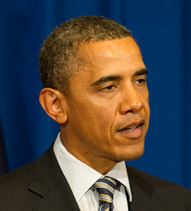After meeting with the Chinese president at the White House, US President Barack Obama spoke of progress on ‘appropriate conduct in cyberspace’.
Obama said on September 25: “I raised once again our very serious concerns about growing cyber-threats to American companies and American citizens. I indicated that it has to stop. The United States government does not engage in cyber economic espionage for commercial gain. And today, I can announce that our two countries have reached a common understanding on the way forward.”
In a long list of economic co-operations and agreements, the US and China affirmed ‘the importance of developing and protecting intellectual property, including trade secrets’; and that ‘states should not conduct or knowingly support misappropriation of intellectual property, including trade secrets or other confidential business information with the intent of providing competitive advantages to their companies or commercial sectors’.
President Xi likewise spoke of having ‘reached important consensus on joint fight against cyber-crimes. Both sides agree to step up crime cases, investigation assistance and information-sharing. And both government will not be engaged in or knowingly support online theft of intellectual properties. And we will explore the formulation of appropriate state, behaviour and norms of the cyberspace. And we will establish a high-level joint dialogue mechanism on the fight against cyber-crimes and related issues, and to establish hotline links.’
Comment
Professor Marco Roscini, Professor of International Law at the Westminster Law School in London, said: “In a joint media conference with Chinese President Xi Jinping on 25 September, US President Barack Obama announced progresses in the relations between the two countries concerning cyber threats. In the statement, both countries agree not to conduct or knowingly support industrial espionage by cyber means. If China really complies with this, it will be a major development. Skilled diplomacy accompanied by the threat of retaliation against China has obviously worked in achieving this result. China has also accepted to co-operate with requests for law enforcement concerning malicious cyber activities from the US authorities. Again, it remains to be seen whether this will happen, but something is clearly moving. If China does co-operate with law enforcement requests, we will know better whether they are really serious about their commitment not to engage or facilitate cyber industrial espionage.
“What is interesting is also what is not in the statement (as it appears on the White House website). In spite of previous reports, the statement only expressly mentions cyber crime and cyber industrial espionage. There is no specific mention of military cyber espionage or of cyber attacks against each other’s national critical infrastructures. The two countries limit themselves to express generic support for the 2015 report of the UN Group of Governmental Experts in the Field of Information and Telecommunications in the Context of International Security.”
Separately, the two countries are to sign a memorandum of understanding (MOU) concerning cooperation in the exchange of information related to money laundering and terrorist financing. At the White House press conference President Xi said: “We believe that terrorism is the common enemy of mankind, and we have agreed to step up multilateral and bilateral counter-terrorism co-operation. We have decided to increase communication and co-operation on counter-piracy, humanitarian assistance, and disaster reduction, and international peacekeeping operation, and also anti-corruption — law enforcement co-operation to jointly fight against all kinds of transnational corruption crimes.”
About Prof Marco Roscini
He is Professor of International Law at the Westminster Law School and author of Cyber Operations and the Use of Force in International Law (Oxford University Press, 2014).









